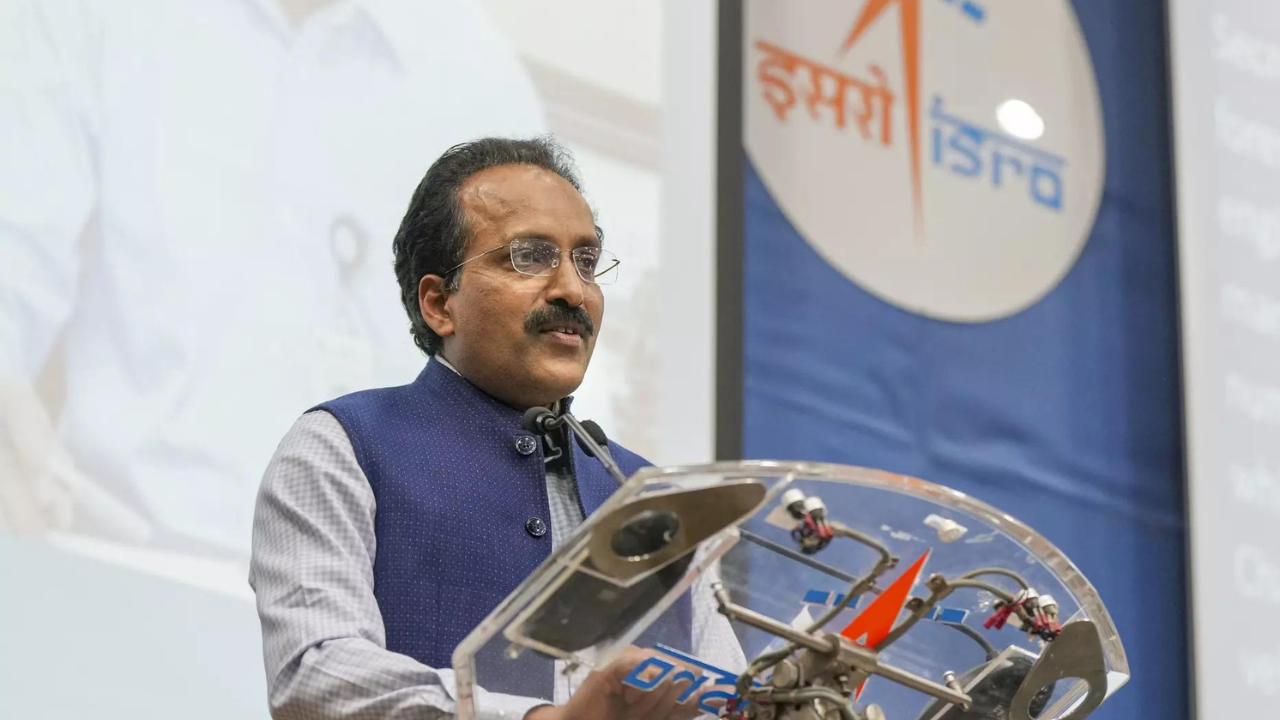75 Years: Laws that Shaped India | The Citizenship Act, 1955

The Citizenship Act of 1955 outlines the procedures for gaining and relinquishing citizenship following the adoption of the Constitution. Initially, the Act also addressed Commonwealth Citizenship, which was later revoked by the Citizenship (Amendment) Act of 2003.
What are the Constitutional Provisions Regarding Citizenship in India?
- Citizenship in India is governed by Articles 5 to 11 under Part II of the Constitution.
- The Constitution doesn't provide detailed or permanent provisions on citizenship.
- It only identifies individuals who became citizens at India's inception on January 26, 1950.
- It doesn't address citizenship acquisition or loss post-commencement.
- The Parliament is empowered to enact laws regarding citizenship matters.
- Consequently, the Parliament passed the Citizenship Act (1955), subject to periodic amendments.
Articles 5 to 11 under Part II of the Constitution :
Article 5: Citizenship at the Commencement of the Constitution
Article 6: Rights of citizenship of certain persons who have migrated to India from Pakistan
Article 7: Rights of citizenship of certain migrants to Pakistan
Article 8: Rights of citizenship of certain persons of Indian origin residing outside India
Article 9: Persons voluntarily acquiring citizenship of a foreign State not to be citizens
Article 10: Continuance of the rights of citizenship
Article 11: Parliament to regulate the right of citizenship by law
How is Citizenship Defined?
- Citizenship denotes the bond between an individual and the state, distinguishing between citizens and aliens.
- Citizens enjoy full membership in the Indian State, along with civil and political rights.
- Citizenship implies exclusion, separating citizens from non-citizens.
- Two prominent principles for citizenship grant are "jus soli," based on place of birth, and "jus sanguinis," recognizing blood ties.
- Historically, Indian leadership, notably the Motilal Nehru Committee (1928), advocated for "jus soli."
- The Constituent Assembly rejected the racial notion of "jus sanguinis," aligning with Indian values.
The Citizenship Act emerged as a pivotal response to India's post-independence need for a robust legal framework governing citizenship:
- Citizenship Act, 1955 outlines acquisition and loss of citizenship post-Constitution commencement.
- Constitutional provisions (Articles 5 to 11, Part II) identify citizens at India's inception without detailing acquisition or loss post-commencement.
- Citizenship is the bond between individual and state, with citizens enjoying full rights.
- Two principles for citizenship grant: "jus soli" based on birthplace and "jus sanguinis" recognizing blood ties.
- The Indian leadership historically favored "jus soli" over "jus sanguinis."
- The Citizenship Act, enacted in 1955, addresses citizenship requirements and eligibility, post-Partition challenges, and British rule's legacy.
The Citizenship Act of 1955 outlines five primary methods for acquiring Indian citizenship, which include birth, descent, registration, naturalization, and incorporation of territory.
By Birth:
- Individuals born in India between January 26, 1950, and July 1, 1987, automatically acquire Indian citizenship regardless of their parents' nationality.
- Those born in India after July 1, 1987, are considered citizens only if at least one parent is an Indian citizen at the time of their birth.
- Children born in India after December 3, 2004, gain citizenship if both parents are Indian citizens or if one parent is an Indian citizen and the other is not an illegal migrant.
- However, children of foreign diplomats stationed in India and enemy aliens are ineligible for Indian citizenship by birth.
By Registration:
The Central Government has the authority to register individuals as Indian citizens if they belong to certain categories and are not illegal migrants:
- Individuals of Indian origin who have been residing in India for seven years before applying for registration.
- Individuals of Indian origin who have been residing outside undivided India.
- Individuals married to Indian citizens and residing in India for seven years before applying.
- Minor children of Indian citizens.
- Individuals whose parents are registered as Indian citizens.
- Individuals who or whose parents were citizens of independent India and have been residing in India for twelve months before applying.
- Individuals who have held Overseas Citizen of India (OCI) status for five years and have been residing in India for twelve months before applying.
To qualify as of Indian origin, the individual or at least one parent must have been born in undivided India or in a territory that became part of India after August 15, 1947.
All applicants must swear an oath of allegiance before being registered as citizens of India.
By Descent:
-
Individuals born outside India between January 26, 1950, and December 10, 1992, are considered Indian citizens by descent if their father was an Indian citizen at the time of their birth.
-
Individuals born outside India on or after December 10, 1992, are considered Indian citizens if either of their parents is an Indian citizen at the time of their birth.
-
For individuals born outside India on or after December 3, 2004, to acquire citizenship, their parents must declare that the minor does not hold a passport from another country, and their birth must be registered at an Indian consulate within one year of birth.
By Naturalisation:
- Citizenship can be acquired by naturalisation if an individual has been ordinarily resident in India for 12 years (including 12 months immediately preceding the date of application and 11 years in total) and meets all qualifications outlined in the third schedule of the Citizenship Act.
By Territorial Incorporation:
- If a foreign territory becomes part of India, the Government of India determines which individuals among the population of the territory will be considered citizens of India. These individuals become Indian citizens from the date specified in the notification.
The Citizenship Act does not permit dual citizenship or dual nationality. It solely recognizes citizenship through the avenues outlined earlier: birth, descent, registration, naturalisation, and territorial incorporation.
The legislation has undergone six amendments in 1986, 1992, 2003, 2005, 2015, and 2019. These amendments have progressively refined the broader and universal concepts of citizenship, particularly concerning birth.
Furthermore, the Foreigners Act imposes a significant burden on individuals to demonstrate that they are not foreigners.
Key Amendments:
1986 Amendment:
- Prior to this amendment, citizenship was granted to anyone born in India under the principle of jus soli. However, the 1986 amendment introduced a condition.
- Individuals born in India between January 26, 1950, and July 1, 1987, were now eligible for citizenship under certain conditions.
2003 Amendment:
- This amendment further tightened the conditions for citizenship, particularly in response to concerns about infiltration from Bangladesh.
- For individuals born after July 1, 1987, and before December 4, 2003, citizenship was contingent on specific criteria regarding the parents' citizenship status and the absence of illegal migrant status.
2015 Amendment:
- The Citizenship (Amendment) Act, 2015, brought modifications to the Overseas Citizen of India (OCI) provisions, merging the Persons of Indian Origin (PIO) card scheme with the OCI card scheme.
2019 Amendment:
- This amendment proposed significant changes, including granting citizenship to specific communities from Pakistan, Bangladesh, and Afghanistan who entered India before December 31, 2014.
- The duration required for citizenship eligibility was reduced from 11 years to 5 years.
- Two notifications exempted these migrants from the Passport Act and Foreigners Act.
- However, this amendment sparked protests in Assam over concerns about granting citizenship to Bangladeshi Hindu illegal migrants.
- The justification provided was based on the religious persecution faced by certain minority groups in these countries.
Conclusion :
The Citizenship Act of 1955 has undergone several amendments over the years, each reflecting shifts in India's approach to citizenship eligibility and rights. From the inclusive principles of jus soli to more stringent criteria based on parental citizenship and concerns about illegal migration, these amendments have shaped the landscape of Indian citizenship. The latest amendments, particularly those in 2019, have sparked considerable debate and protest, underscoring the complexities and sensitivities surrounding citizenship issues in India. As the nation continues to grapple with evolving demographics, migration patterns, and notions of identity, the discourse on citizenship remains a critical aspect of its socio-political landscape.













